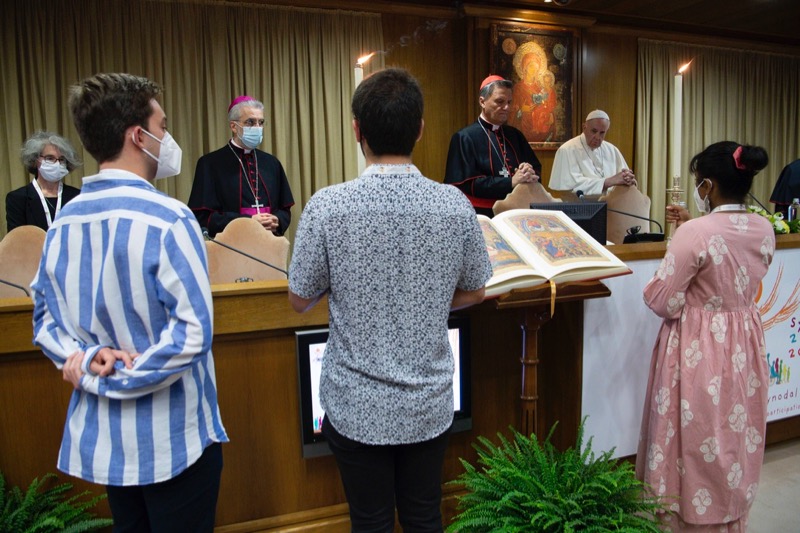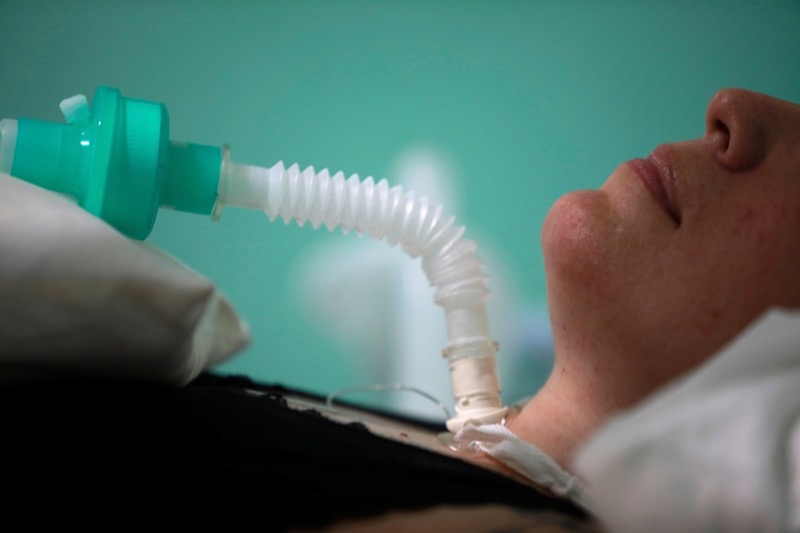When people request euthanasia, it is often because they fear being a “burden” on others, according to a leading biothecicist.
“Nobody should be left in terrible pain, that can always be dealt with,” Dame Margaret Somerville, Professor of Bioethics at the University of Notre Dame Australia, said during a Tablet webinar on bioethics, palliative care and assisted dying.
Arguing against euthanasia, Professor Somerville noted that very often pro-euthanasia cases were promoted on the grounds of people being in terrible pain, but for those requesting euthanasia, pain was not cited as a major reason. The main reasons were a fear of loss of independence, a feeling of loss of dignity, and very often a feeling that they are a burden on other people.
“I have just been consulted on a case in Canada, where two people in the family are very upset because they found out after their mother had been euthanised that she had told her carer that she wanted it because she didn’t want to be a burden on other people, particularly her children.”
The webinar was also addressed by Professor David A Jones, Professor in Bioethics at St Mary's University, Twickenham and Dr Pia Matthews, Senior lecturer in Bioethics and Medical Law at Mater Ecclesiae College. The webinar theme was on progressive values, and why they dominate bioethics in Western democracies.
Discussing the case for decriminalising assisted dying to protect medical professionals faced with hard decisions as to when relieving pain becomes assisted dying, Professor David Jones acknowledged there can be ambiguities in people’s practice.
“But I think that it would be a mistake to think that those ambiguities will change if you change the law. What will happen is that they will shift, and a new set of ambiguities will arise,” he cautioned.
He highlighted how in Belgium terminal sedation is being increasingly used intentionally because it is not euthanasia, technically speaking, and it doesn’t have the same reporting structures as euthanasia.
“So it isn't that the ambiguity goes away, but the ambiguity shifts to a different set of cases and those sorts of cases actually expand.”
Professor Margaret Somerville cited the situation in Quebec, Canada which allows for voluntary assisted dying and terminal sedation as a form of euthanasia.
“What I think is appalling about it is that it is the only form of euthanasia that can be consented to by a surrogate decision-maker. So, you could have somebody who is incompetent to give informed consent to Euthanasia and the surrogate decision-maker could consent to terminal sedation, which is often called, in practice, slow euthanasia.”
She also noted concerns raised by the Dutch Medical Society about the fact that a high rate of mental illness and post-traumatic stress disorder has been seen among doctors who have carried out a substantial number of cases of euthanasia. This has led to an increase in the use of terminal sedation as it is perceived to take less of a toll on doctors.
The Australian ethicist stressed that nobody should be left in terrible pain and that palliative sedation needed to be distinguished from terminal sedation.
Asked about the danger, in opposing euthanasia, of promoting dysthanasia, which involves employing unpleasant medical measures in a futile effort to prolong life, Dr Pia Matthews stressed that doctors need to understand that death is not a failure of medicine.
“It is a question of good conversations and having a dialogue with people because lots of people don't see death, they don't know how death can be. That is why the Art of Dying Well website is up, to give people an idea of what actually does happen. Often people are so afraid that they want as much treatment as possible, or they want to give up immediately.”
We have got really good palliative care and really good doctors working in palliative care. We should hear more good stories about how you can die well, and that not having certain treatment is not suicide or euthanasia.” She said the distinction between euthanasia and recognising the limits of life needed to be clearer.
“There comes a time when doctors need to realise that the treatment needs to be withdrawn,” said Professor Jones. He acknowledged: “It is not a new thing for doctors to cause more suffering than they alleviate”.
“I think the problem of over treatment and dysthanasia is the same for me as the concern that I have with euthanasia – they are both about control and the doctor not being willing to let go of control and the patient not being able to let go of control in a certain way. The control becomes something which is counterproductive, which either causes excess suffering or deliberately ends the person’s life, rather than recognising that there is a limit to what medicine can do and a limit to control. I think they are two sides of the same coin.”
For Margaret Somerville, it can be a matter of “prolonged dying rather than prolonging living”.
“There is no obligation to prolong dying. Some of the most difficult cases that I have been involved in concern desperate parents with a dying child and the parents want to try everything possible for that child and yet the treatments involve intense suffering. That can be a very difficult situation.”
Responding to a question on the war in Ukraine, Professor Jones said that from the point of view of the Russians, it was “obviously unjust”, as it was an unprovoked invasion of one country by another in an extremely brutal way. “Added to that is the way that it has been fought,” he said.
“There is a traditional way of understanding war. The so-called just war tradition – which looks at the reason for going to war and the justice by which it is prosecuted. The reasons for the Russians going to war in first place are unjust and it is obviously unjust in the way in which it has been carried out against civilian targets, against houses, against hospitals, against theatres, against whole areas together with their population. This is characteristic of terrorism,” he hit out.
From the point of view of the Ukrainians, he said the question was whether it was just for them to fight.
“Sometimes it is just to oppose injustice by fighting so long as you fight against soldiers, so long as you don't take it out on the civilian population, so long as you don't take it out, for example, on Russians or Russian speakers within Ukraine, and you don't take it out on civilians in other countries. If you fight against those who are fighting against you because the alternative would be a kind of enslavement and getting rid of your freedom, it could be a justified war.”



 Loading ...
Loading ...